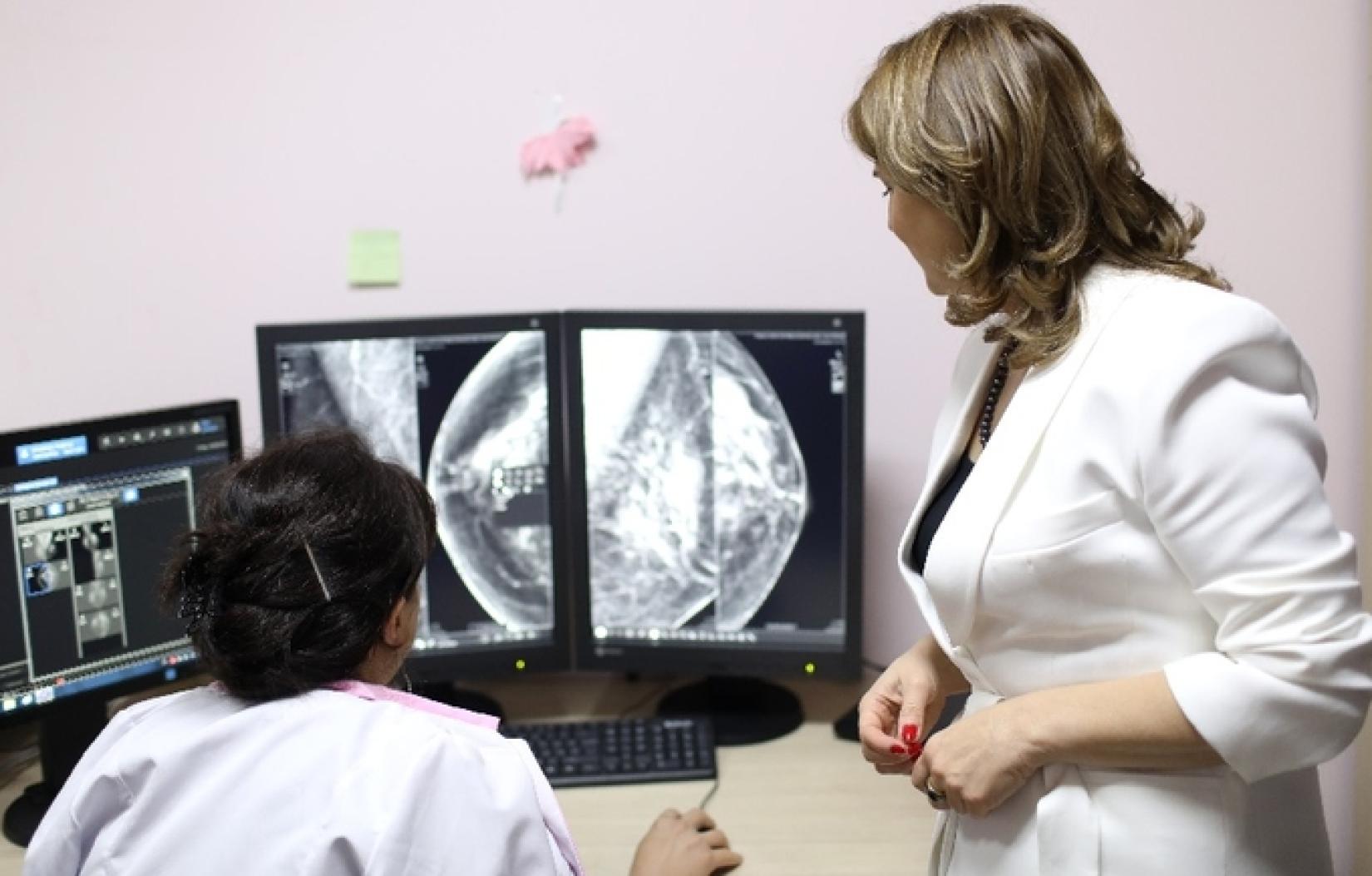Georgia takes steps to build digital health capacity
29 September 2022
Launched in September 2021 by WHO, the project is funded by the European Union (EU); the Ministry of Internally Displaced Persons from the Occupied Territories, Labour, Health and Social Affairs of Georgia; the United Nations Children’s Fund (UNICEF); the United Nations Office for Project Services (UNOPS); and the United Nations Population Fund (UNFPA).

The COVID-19 pandemic has shown the importance of telemedicine for reaching patients in need regardless of their location or accessibility. As part of its response, WHO is leading a multiagency project to build digital health and telemedicine capacity in Georgia. “Minimizing the impact of the COVID-19 outbreak in Georgia through telemedicine and digital health solutions” aims to harness the potential of digital tools for advancing telehealth services and promoting health in the country.
Launched in September 2021 by WHO, the project is funded by the European Union (EU); the Ministry of Internally Displaced Persons from the Occupied Territories, Labour, Health and Social Affairs of Georgia; the United Nations Children’s Fund (UNICEF); the United Nations Office for Project Services (UNOPS); and the United Nations Population Fund (UNFPA).
In the framework of the project, the WHO Country Office in Georgia, together with WHO/Europe’s data and digital health team and health workforce team, organized a technical workshop with international experts and key stakeholders in Georgia’s health system. Together they discussed digital governance and readiness, improvements to the health information system, and how health workers and patients can benefit from their use.
Assessing the national health information system
The workshop followed months of preparatory work by WHO/Europe’s data and digital health team. It included a series of assessments of the country’s health information system and digital health capacity, site visits, interviews with stakeholders, and readiness assessments of 100 rural primary health care (PHC) facilities.
Participants in the workshop included PHC doctors as well as staff from Georgia’s Innovation and Technology Agency; the Georgian Medical Holding under the Ministry of Internally Displaced Persons from the Occupied Territories, Labour, Health and Social Affairs; the National Statistics Office; the National Center for Disease Control and Public Health; the WHO Collaborating Centre in eHealth based at the Open University of Catalonia (UOC) in Barcelona, Spain; and the United Kingdom’s National Health Service organizations Health Education England and Education for Scotland.
Across the board, the experts stressed the importance of considering the human and cultural aspects of implementing telemedicine.
“It is critical that policies that promote the use of telemedicine go beyond the purely technological dimensions and take into account other key factors such as professional and social determinants, as well as those of a contextual and organizational nature,” explained Francesc Saigí Rubió from the WHO Collaborating Centre in eHealth.
Drawing on this, the workshop focused on establishing a telemedicine governance group, developing a plan to improve the health information system in the country, and developing standards and competencies for the delivery of telemedicine.
Telemedicine in rural settings
Over 40% of Georgia’s population lives in rural areas. In rural settings, PHC is provided by standalone family medicine practices, each with 1 family doctor supported by 1 nurse. Only 20% of PHC facilities use electronic records, while 80% continue with paper-based records.
During the workshop, participants identified some of the main challenges in delivering heath care in rural settings, including:
- inadequate physical and information infrastructure
- the profile of the health workforce
- insufficient awareness and education
- lack of continuing medical education
- lack of a regulatory mechanism
- inadequate communication
- a fragmented system.
Experts from the governments of the United Kingdom and Scotland presented their experiences in delivering telemedicine services. They explained how, in most rural settings, they took a gradual approach, starting small and slowly adding additional functions and providers.
“Georgia has the opportunity to move step by step to develop the best telemedicine model for Georgia,” said an expert from HEE. “Drawing on experiences of others, it is best to start with the simplest services and gradually refine and expand them.”
Challenges and results
Following the workshop, experts visited rural outpatient clinics operating both with and without telemedicine equipment, met a cardiologist providing remote consultations, and talked to ministry leaders.
Doctors, patients and project stakeholders expressed their passion for contributing to the project and increasing access to health services. They also shared some of the challenges facing telemedicine in Georgia, such as inadequate coordination among agencies, weak internet connections, paper-based patient records and lack of interoperability between computer systems.
The mission delivered important results, including a draft governance mechanism for digital health, productive discussions on the improvement plan for the health information system, and discussions on the standard of care framework and core competencies for the development of noncommunicable disease guidelines. The mission also contributed to building new partnerships and strengthening existing relationships.

